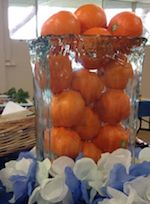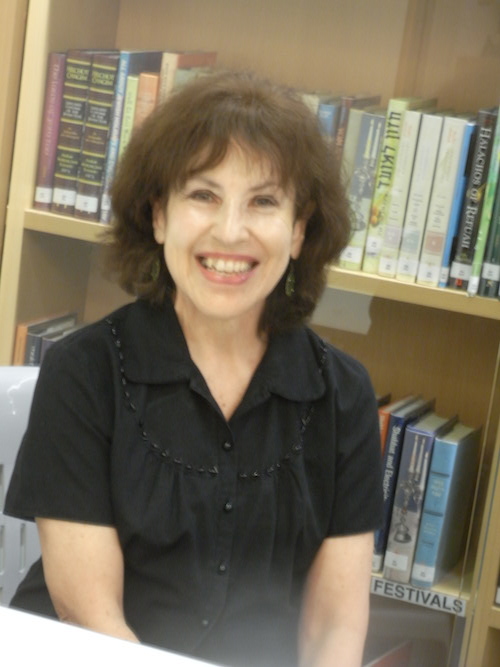Why Synagogues Are Important - President's Message 22/07
22/07/2016 12:41:48 AM
| Author | |
| Date Added | |
| Automatically create summary | |
| Summary |
Last week I discussed how my father’s death led me to daven at the daily minyan, an enveloping experience. Coincidentally, in his weekly Torah commentary on Parshas Chukat, former Chief Rabbi Jonathan Sacks also starts with the death of his father: he relates that his personal experience of the trauma of loss gave him insight in understanding the incident of Moses striking the rock instead of speaking to it to get water. He sees the parsha as being about death, loss and bereavement. He writes:
Miriam dies. Moses and Aaron are overwhelmed with grief. Moses, for a moment, loses control, and he and Aaron are reminded that they too are mortal and will die before entering the land. Yet this is, as Maimonides said, “the way of the world.” We are embodied souls. We are flesh and blood. We grow old. We lose those we love. Outwardly we struggle to maintain our composure but inwardly we weep. Yet life goes on, and what we began, others will continue.
In the last book he wrote before becoming chief rabbi 25 years ago, Arguments for the Sake of Heaven – which you can find in our shul library – Sacks explores the past and the future of the Jewish people. He considers different approaches to Jewish identity. One of these comes from a leading Jewish philosopher, Emil Fackenheim, who articulated what he called the 614 commandment, that it is “forbidden to hand Hitler yet another, posthumous victory.” Sacks argues that suffering is not a source of Jewish identity: “Judaism survives despite Auschwitz, not because of it.” More generally, Sacks rejects anti-Semitism as the basis of identity because it is imposed, as Jewishness being something thrust upon the Jew. He also rejects Zionism and Israel as a substitute for Jewish religion. And he rejects minimalist conceptions of Jewish identity, whether it be a form of folk religion or feeling of kinship. Sacks argues that the Jews constituted a single people because of Torah, the essence “that bound them to a shared life, a shared history, and a shared destiny.” We are a faith community bound by a tradition of interpretation. As Sacks put in a more recent book, Future Tense (2009, also in our library):
Judaism is not an ethnicity, a culture, a set of folkways, a defiance of anti-Semitism or political correctness plus a yarmulkah (cap) and Jewish jokes. It is a faith, and the people who are in a state of denial about this are Jews. It was as a faith that Jews were born as a people, and it is as a faith that Jews will survive as a people. Leave faith out of the Jewish equation and what is left is a body without a soul.
The institution of the synagogue dates from about 2500 years ago, from the time of the destruction of the First Temple and the Babylonian exile. Over a dozen synagogue sites dating from the Second Temple period have been discovered by archaeologists in Israel and elsewhere. When the Second Temple was destroyed in the year 70, Yochanan ben Zakkai, one of the leading rabbis of that era, “promulgated the idea of creating individual houses of worship in whatever locale Jews found themselves. This contributed to the continuity of the Jewish people by maintaining a unique identity and a portable way of worship despite the destruction of the Temple, according to many historians.” (Wikipedia) The structure of the prayer services was codified during the Talmudic era (the commonality of Ashkenazi and Sephardi services suggests that the main elements were in place over 1000 years ago). The synagogue is the main centre of Jewish life, religious, spiritual and social – a place of prayer (davening), assembly (kehillah) and learning (shul). For a faith community, the synagogue is where it’s at.
My wife Yvonne and I support many Jewish charities, JCA, UIA, JNF and others. We are fortunate that we are able to do so. They all do important things. But, in my view, they are in the periphery, we are at the core. Synagogues matter. Large, important synagogues like South Head matter a lot – we are the building blocks of the faith community of today and the future.
Mon, 25 August 2025
1 Elul 5785
Contact Us:
Today's Calendar
| Rosh Chodesh Elul |
| Shacharis : 6:30am |
: 9:10am |
: 5:30pm |
| Mincha : 5:35pm |
: 5:57pm |
This week's Torah portion is Parshas Shoftim
| Shabbos, Aug 30 |
Candle Lighting
| Friday, Aug 29, 5:17pm |
Havdalah
| Motzei Shabbos, Aug 30, 6:13pm |
Rosh Chodesh Elul
| Monday, Aug 25 |
Full Calendar Here
Happy Jewish Birthday!
Monday 1 Elul
- Toby Levine-Evans
We wish "Long Life" to:
Monday 1 Elul
- Elaine Bolon for father, Gerald Sender
Wednesday 3 Elul
- Cecille Levin for husband, Gerald Philip Levin
- Gary Weiss for uncle, Berl Yisosko Dov Frankl
Halachik Times
| Alos Hashachar | 5:09am |
| Earliest Tallis | 5:38am |
| Netz (Sunrise) | 6:23am |
| Latest Shema | 9:10am |
| Zman Tefillah | 10:06am |
| Chatzos (Midday) | 11:58am |
| Mincha Gedola | 12:25pm |
| Mincha Ketana | 3:13pm |
| Plag HaMincha | 4:22pm |
| Shkiah (Sunset) | 5:32pm |
| Tzais Hakochavim | 5:57pm |
| More >> | |
South Head Catering

South Head Catering is well and truly on the map! What began as a small initiative to provide a little variety and some new options by the South Head Ladies Guild has turned into a highly successful venture with people absolutely raving about the service and products on offer.
Want to know more? Want to help out and volunteer? Visit our Catering page.
Mikvah Aziza
Mikvah Aziza at 662 Old South Head Road, Rose Bay has re-opened.
Please click here for details:
South Head Library
 Welcome to the Sandra Bransky Library & Youth Synagogue, located on the first floor and including the Beit Midrash. Drop in any Sunday morning between 9 - 11am.
Welcome to the Sandra Bransky Library & Youth Synagogue, located on the first floor and including the Beit Midrash. Drop in any Sunday morning between 9 - 11am.
I look forward to helping you get the most out of our beautiful world of books at South Head.
Sylvia Tuback, South Head Libarian
southheadlibrary@gmail.com
SHOFTIM
Rose Bay, NSW 2029
(02) 9371 7300
Privacy Settings | Privacy Policy | Member Terms
©2025 All rights reserved. Find out more about ShulCloud



